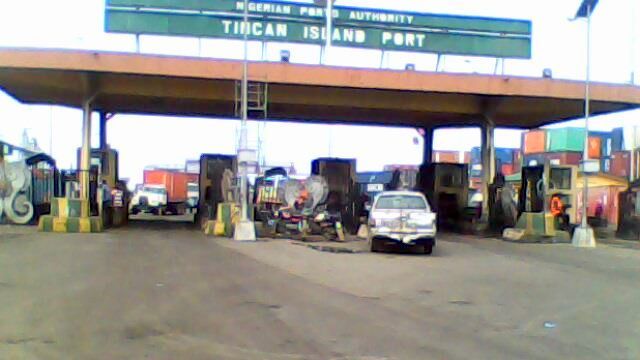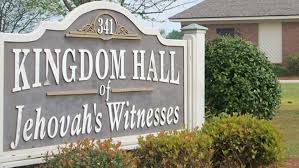By Uzor Odigbo
At last the long awaited Council for Regulation of Freight Forwarding in Nigeria (CRFFN) collection of Practitioners Operating Fees ( POF) has finally kicked off, though with discordant tunes and skepticism from stakeholders.
POF is the latest tax introduced by the government, despite the high cost of doing business in Nigeria ports, which according to statistics, Nigeria ports are the most expensive in West and Central Africa, if not in the world.
The CRFFN has tactically joins the Customs, NPA, NIMASA and others as revenue generating agencies in Nigerian ports. The Council is expected to generate over N7billion from the POF collection annually in Nigeria ports.
A cursory look at the struggle by government agencies to reap funds and taxes from the ports shows that Nigerian Ports will continue to attract corruptible tendencies as long as our ports system is seen as another oil well full of idle funds that can attract government.
At present over thirty various fees and taxes are being collected from the Nigeria ports system. Under the Nigeria Customs Service alone , we have over ten taxes and levies, namely import duty, excise duty , export duty, ETLS, NAC levy, CISS, sugar levy, rice levy etc.
Under the Nigerian Maritime Administration and Safety Agency (NIMASA), levies like 3% charges from every ship that enters Nigerian Waters and 2% Cabotage levy for local shipping business is been collected by the agency.
The Nigerian Ports Authority (NPA), Standards Organisation of Nigeria (SON),shipping companies and the terminal operators also collects their various taxes, levies and fees.
A few years back the Lagos State government under the leadership of Babatunde Fashola also saw the cash cows available in the ports and quickly introduced the Ports Landing Fee as a way of netting its own share from the largess in the ports.
While, the CRFFN has finally succeeded in getting their own national cake from the ports system, the Nigeria Shippers’ Council is fighting tooth and nail to introduce its own revenue generating tool through the reintroduction and forcing government to affirmed the Cargo Tracking Note implementation by the Council.
Just recently, the NSC formulated a registration policy for shipping companies and importers with certain registration fees to be paid, it did not sail through, but the NSC is not relenting. After all, if the CRFFN which is the Council’s baby could achieved financial autonomy to take from the Nigeria ports national cake, why not the NSC.
THE TROUBLE AHEAD FOR CRFFN, THE ASSOCIATIONS AND POF PAYEES.
Though, the CRFFN has kicked- off the collection of the controversial fees, tempers are still high and there is no agreeable sharing formula among the associations and the payees.
According to the National President of ANLCA, Iju Tony Nwabunike, the Council has promised to train freight forwarders and take care of their welfare alongside the freight forwarding associations, but there is no clear cut formula that has been agreed to be use for disbursement of the fund’s percentage belonging to the payees and the associations.
According to the CRFFN all funds collected will go to the Treasury Single Account (TSA) domiciled at the Central Bank of Nigeria (CBN). While the Council will apply to collect the percentage that belongs to the various parties for onward sharing of the parties involved.
This sound logical and uncertain. For instance there is no time frame attached to the sharing formula, is it monthly, quarterly or yearly?.
What will be the channel of payees
getting back their share of the fund, is it through the payees account or through his/ her association account?
If it’s through associations account, those that don’t belong to any association, but are paying the POF, how will they get their own percentage?
While, the CRFFN is eagerly set to collect the fees , the freight forwarders have not perfected their modes of receiving their shares of the funds from the Council.
Like the Cabotage Vessels Financing Fund (CVFF) which most ship owners had so much hope of solving their welfare and financial problems, the POF is likely to follow same way.
It is my candid opinion that all freight forwarders, importers and their associations who are involve in paying this fees should put their houses in order from the onset so that they could benefit from the POF as promised by the authorities. Failure to do that , they will have themselves to blame.
They should remember the government and its agencies will do everything possible to cause frictions , divide and rule and other gimmicks to frustrate them from benefiting from the fund.
Freight Forwarders and their associations should learn from the disbursement debacle of the CVFF which since 2003 has been stories upon stories with no end in sight .
Payees of the POF should know that any money that enters government purse in Nigeria hardly comes out.
The fees and agencies collecting them had made doing business at the ports very costly as shippers and other trading stakeholders transfer such taxes and fees to the end user.
Government as a regulator should strive to either reduce the fees through these agencies or abolish totally to reduce the cost of freights in Nigerian ports.
















